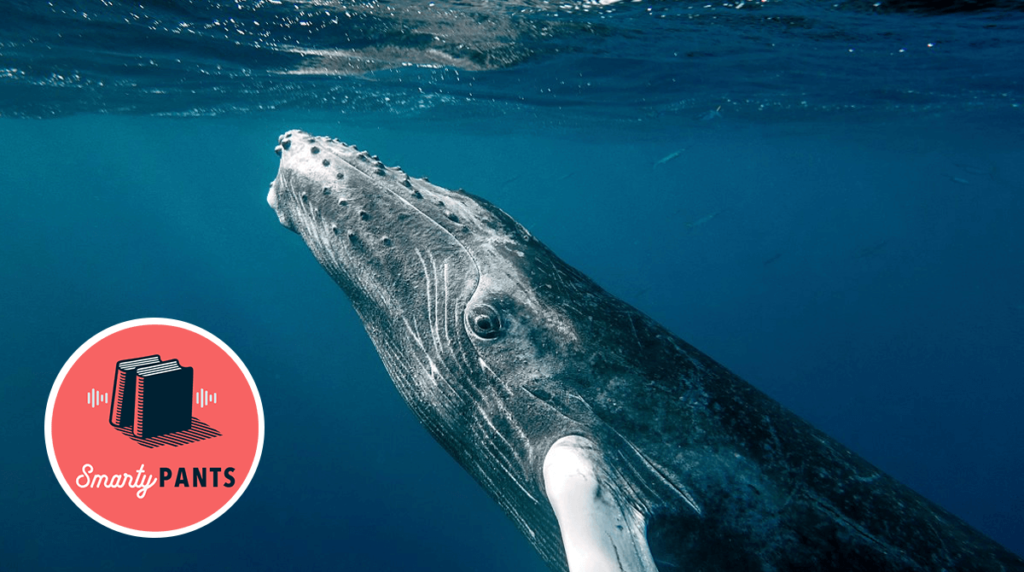Whale Song
Unlocking the mysteries of the world’s largest mammals with old bones and new technology

It’s hard to believe that one of the biggest and oldest creatures of the planet is also the most mysterious. But whales have been around for 50 million years, and in all that time, we still haven’t figured out how many species of whales have existed—let alone how many exist today. How did these creatures of the deep get to be so big, and how did they make it back into the sea after walking on land? Most importantly, what will happen to them as humanity and its detritus increasingly encroach on their existence? The Smithsonian’s star paleontologist, Nick Pyenson, joins us this episode (originally aired in 2018) to answer some of our questions about the largest mysteries on Earth, and how they fit into the story of the world’s largest ecosystem: the ocean.
Go beyond the episode:
- Nick Pyenson’s Spying on Whales: The Past, Present, and Future of Earth’s Most Awesome Creatures
- Take a 3D tour of the Cerro Ballena site, where dozens of intact whale fossils were found by the side of the road in Chile
- Check out Phoenix’s website at the Smithsonian, where you can learn all about this right whale (to search for sightings of her, follow this link to the North Atlantic Right Whale Catalog and enter “Whale Name: Phoenix” on the “Search for Individual Whales” page)
- Explore the hidden lives of minke whales, who live in rapidly warming Antarctic waters
- Tag along on marine biologist Ari Friedlaender’s trips to tag whales in the ocean(“extreme field science in action!”)
- Listen to an incredible story about one woman and a baby whale on the “This Is Love” podcast
- There are some amazing, tear-jerking whale videos on YouTube that we stumbled upon in our research for this episode. To get you started, here’s the story of how a whale saved biologist Nan Hauser’s life
- The inimitable David Attenborough mingles his voice with the dulcet tones of humpback whale song in this clip from the BBC’s Animal Attraction
- And listen to our interview with Marcus Eriksen, who sailed the Pacific on a “junk raft” to raise awareness about aquatic plastic pollution—one of the leading causes of death in marine creatures
- We used whale songs in this episode that were recorded by the Cornell Ornithology Lab. Check out their archive the “Sea of Sound” here.
Tune in every week to catch interviews with the liveliest voices from literature, the arts, sciences, history, and public affairs; reports on cutting-edge works in progress; long-form narratives; and compelling excerpts from new books. Hosted by Stephanie Bastek and sponsored by the Phi Beta Kappa Society.
Subscribe: iTunes • Feedburner • Stitcher • Google Play • Acast
Download the audio here (right click to “save link as …”)
Have suggestions for projects you’d like us to catch up on, or writers you want to hear from? Send us a note: podcast [at] theamericanscholar [dot] org. And rate us on iTunes!
Our theme music was composed by Nathan Prillaman.

